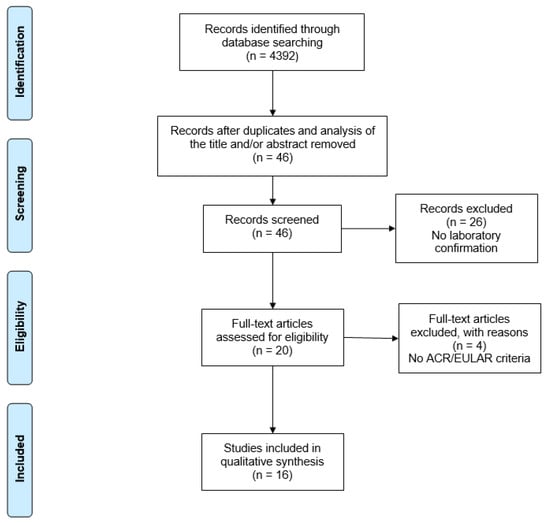TropicalMed, Vol. 10, Pages 54: Chikungunya Fever and Rheumatoid Arthritis: A Systematic Review and Meta-Analysis
Tropical Medicine and Infectious Disease doi: 10.3390/tropicalmed10020054
Authors:
José Kennedy Amaral
Robert Taylor Schoen
Michael E. Weinblatt
Estelita Lima Cândido
Chikungunya fever (CHIKF) is a re-emerging infectious disease caused by the chikungunya virus (CHIKV), transmitted primarily by Aedes mosquitoes. A significant number progress to chronic chikungunya arthritis, which shares similarities with rheumatoid arthritis (RA). Despite evidence of a link between CHIKV infection and subsequent RA development, a comprehensive analysis of the relationship between these two diseases is lacking. This study systematically analyzes the incidence of RA after CHIKV infection and its immunological mechanisms, following PRISMA guidelines with literature searches across multiple databases up to 3 September 2024. Eligible studies included retrospective and prospective designs reporting RA diagnoses after CHIKV infection. Data extraction was performed independently, and the risk of bias was assessed using appropriate tools. Sixteen studies involving 2879 patients were included, with 449 individuals diagnosed with RA following CHIKV infection, resulting in a combined incidence of 13.7% (95% CI: 6.12% to 27.87%). High heterogeneity between studies was observed (I2 = 96%), indicating variability related to diagnostic criteria and population characteristics. This review highlights the significant RA incidence after CHIKV infection, emphasizing the need for research on autoimmune mechanisms, long-term rheumatological follow-up, early diagnostic biomarkers, and CHIKV’s long-term health impacts.
Source link
José Kennedy Amaral www.mdpi.com

